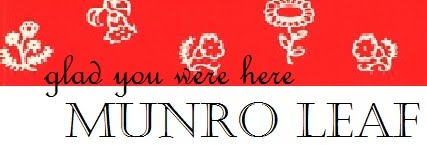Yesterday the son of some friends of mine was made "
Eagle Scout," the highest rank a person can attain in the Boy Scouts. Famous Eagle Scouts include
Michael Bloomberg,
Steven Spielburg,
Dirty Jobs'
Mike Rowe, and
Donald Rumsfield. (Who knew?)
My family and I went to the ceremony, pleased to show up and see him (and his family) honored. I've always liked this boy. I like how, when the other kids often grab pizza, scatter and disappear for the night when our families get together, he's gamely dug into take-out Indian or Vietnamese food, sat with the adults, and made conversation with us.
Little did I know (until yesterday's ceremony) that in the large gaps between family or neighborhood get-togethers, this boy has been learning the skills of a chef, EMT, and communications specialist -- to name only a few of the tasks he's mastered. (And he has the patches and badges and pins to prove it.)
Last night, over
Shirley Temples (as is our tradition during family meetings), my husband and I debriefed about the Eagle Scout ceremony with our kids. Were there things Alex learned to do as a Boy Scout that any of the kids would like to try? (Fly fishing? Tracking? Knot-tying? Wilderness survival?)
I had, of course, an ulterior motive for starting a conversation about the ceremony -- and it had to do with courtesy.
It was not the fact that the grown men (yes, wearing that beige uniform decorated with kerchiefs around their necks and a multitude of patches and pins) and the boys at the ceremony were courteous, although they were indeed beautifully well-mannered.
It was something an older Eagle Scout said in a speech about what it means to be an Eagle: he said "doing a good turn daily" was a key discipline.
"What did he mean,
doing a good turn?" I asked the kids last night.
I'm glad I asked. None of them, from the third grader to the freshman in high school, could define it properly. They offered answers such as "returning a favor," "taking your turn," and "being coordinated." Mia, age eight, came closest when she said, "Doing something nice for someone else so that they will do something nice for you."
Half right, I explained. Doing a good turn is about serving others
without the expectation that the favor will be returned.
Here's
how the Boy Scouts define doing a good turn:
A Good Turn is a volunteered kind act of good deed. Boys must be encouraged to watch for things that need to be done, and then do them without being asked. More, boys must be trained and educated into the Good Turn Habit. They must be helped to see that doing a job which they are already supposed to do, even cheerfully, ought not be classed as doing a Good Turn. ...the Good Turn is really a philosophy of living, of which Service to others becomes the key. A Good Turn is a volunteered kind act or deed.
And, although no one in my family will ever be a Boy Scout, this week we all committed to performing acts of kindness for each other.
(Maybe at next week's family meeting, I'll have the job of distributing a merit patch or two.)



